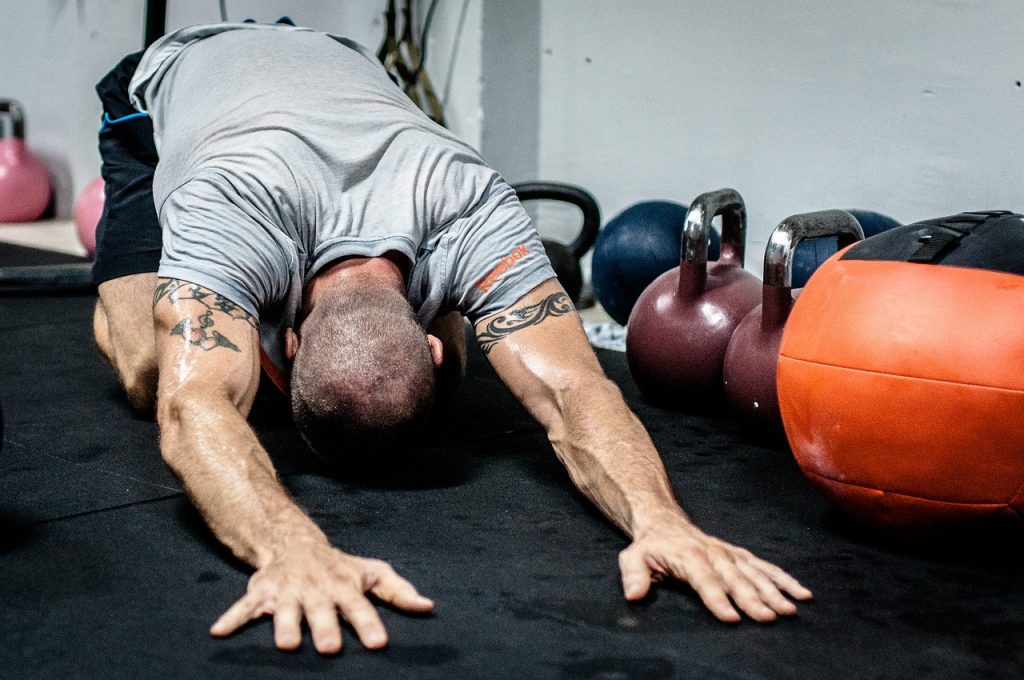Table of Contents
Previous article about stretching
Does stretching before an activity make you stronger and/or faster, or does this only work in the long term? In a previous, very comprehensive, article about stretching, I already discussed the short-term effect of stretching on sports performance[1]. In this article, I referred to the work of Canadian researcher Ian Shrier, who has conducted a lot of research on stretching, including his own studies and comparative studies of other research. In one study, he compared 23 studies on the effects of stretching on sports performance that must follow directly [2].He concluded that 22 out of 23 studies showed that stretching has no positive effect on sports performance that follows directly. There were also studies that showed a negative effect, as muscle strength was not improved, and performance in running decreased. Ian ShrierReasons for this include the numbing effect that stretching can have [3,4,5,] and he refers to research on rats which shows that even light stretching can cause damage at the cellular level in muscles [6]. Today I will discuss later published comparative research that nuances the above and provides more insight. To be clear, this research is limited to the effects of static stretching and does not address other forms of stretching such as dynamic stretching or PNF.
Limit stretching before activity to 60 seconds.
Researchers from the University of Northampton looked at a total of 4559 studies, of which 106 ultimately met the criteria for their comparative study [7]. Based on this comparison of various studies, they concluded that sports performance does not suffer from static stretching beforehand, as long as these stretches do not last longer than 60 seconds.Clear evidence exists indicating that short-duration acute static stretch (<30 s) has no detrimental effect (pooled estimate = -1.1%), with overwhelming evidence that stretch durations of 30-45 s also imparted no significant effect (pooled estimate = -1.9%). A sigmoidal dose-response effect was evident between stretch duration and both the likelihood and magnitude of significant decrements, with a significant reduction likely to occur with stretches ≥ 60 s. This strong evidence for a dose-response effect was independent of performance task, contraction mode, or muscle group. Studies have only examined changes in eccentric strength when the stretch durations were >60 s, with limited evidence for an effect on eccentric strength. A.D. Kay, University of NorthamptonPerformance would only be reduced with longer stretches. For clarity, researcher Shrier concluded that stretching has no acute, positive effects. The researchers from the University of Northampton conclude that stretches shorter than 60 seconds do not cause negative effects. So it is not stated that short stretches lead to acute, positive effects!
Why stretch before sports and for how long?
Then I return to the previous, extensive article. First of all, it appears that you stretch mainly for flexibility and not to become stronger or faster. Then I discussed in that article studies that looked at the necessary duration of stretches to indeed have an effect on flexibility. The outcome of this fits perfectly with the comparative research of the University of Northampton. The studies discussed showed that it was of little use to stretch for longer than 30 seconds [8,9,10]. Longer than that did not further increase flexibility. Sometimes, 10 seconds was long enough [10]. An exception applies to people over 65, for whom research has shown that 60 seconds is optimal [11]. For younger people, therefore, 30 seconds is sufficient to achieve the benefits for flexibility without compromising strength. For people over 65, stretching for 60 seconds puts them on the edge where they gain as much flexibility as possible, but they also begin to risk compromising performance immediately following.Conclusion
As an older person, you can stretch for 60 seconds to focus as much as possible on flexibility. However, if you want to fully benefit from strength immediately afterwards, it may be wise to stretch slightly shorter. For younger people, stretching statically for longer than 30 seconds is pointless for extra flexibility, and at this short duration, the stretch is likely not to compromise immediately following performances.References
- fitsociety.nl/stretchen/
- Shrier I. Does stretching improve performance? A systematic and critical review of the literature. Clin J Sport Med. 2004 Sep;14(5):267-73.
- Magnusson SP. et al. Mechanical and physiological responsen to stretching with and without preisometric contraction in human skeletal muscle. Arch Phys Med Rehabil 1996;77:373-378
- Halbertsma JPK. et al. Stretching exercises: effect on passive extensibility and stiffness in short hamstrings of healthy subjects. Arch Phys Med Rehabil 1994;75:976-98
- Moore MA, Hutton RS. Electromyographic investigation of muscle stretching techniques. Medicine and Science in Sport and Exercise 1980; 5:322-9.
- MacPherson PCD. et al. Contraction-induced injury tot single fiber segments from fast and slow muscles of rats bij single stretches. Am J Physiol 1996;271:C1438-C1446.
- Kay AD, Blazevich AJ. Effect of acute static stretch on maximal muscle performance: a systematic review. Med Sci Sports Exerc. 2012 Jan;44(1):154-64. doi: 10.1249/MSS.0b013e318225cb27. Review. PubMed PMID: 21659901.
- Bandy WD, Irion JM. The effect of time on static stretch on the flexibility of the hamstring muscles.Phys Ther. 1994 Sep;74(9):845-50; discussion 850-2
- Bandy WD, Irion JM, Briggler M. The effect of time and frequency of static stretching on flexibility of the hamstring muscles. Phys Ther. 1997 Oct;77(10):1090-6.
- Borms J, VanRoy P, Santens JP, Haentjens A. Optimal duration of static stretching exercises for improvement of coxo-femoral flexibility. J Sports Sci.1987;5:39–47.
- Brent Feland J, William Myrer J, Schulthies SS, Fellingham GW, Measom GW. The Effect of Duration of Stretching of the Hamstring Muscle Group for Increasing Range of Motion in People Aged 65 Years or Older. Physical Therapy

